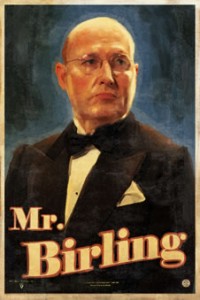An Inspector Calls- Eric
A step by step guide to writing an essay about this character for Lit Paper 1 🙂

A step by step guide to writing an essay about this character for Lit Paper 1 🙂
You are invited to participate in World Book Day 2016. Dress up as your favourite literary character or dress as if you are ready for a bedtime story by wearing your onesie or pyjamas!
Anybody who doesn’t want to dress up needs to be in full school uniform.
Bring along your favourite book or magazine to share throughout the day. If you are caught reading during social time you will be eligible to win a prize!
During the first or last 10 minutes of selected lessons that day, your teacher will read you an extract from their favourite book, or give you individual reading time.
Stuck how to revise for An Inspector Calls?
One of the best way to revise for An Inspector Calls is to select your quotations for each character and organise them by First Impressions, Eva Smith, Relationships and Change.
If you don’t have your own copy of the play download the following documents which have a plethora of excellent quotations for you: Character-quotations and Key Quotations AIC
Once you have found all your quotations for Mr Birling, Mrs Birling, Sheila, Eric, Gerald and the Inspector you are ready to start exploding!
Hello Year 11!
There is a wealth of revision material available to you online when revising conflict poetry. So no excuses!
First of all, download this revision guide: Conflict Poetry Revision
Your next step should be to head on over to BBC Bitesize: http://www.bbc.co.uk/schools/gcsebitesize/english_literature/poetryconflict/
If you still can’t get enough of poetry revision- YouTube has some excellent resources. J Brierley’s videos are both watchable and informative.
Howdy,
For AQA Literature Paper 2, you will need to compare two poems. You will have a choice of two questions.
Download the PPT and see whether you can “Compare the ways poets show how conflict affects civilian victims in ‘Out of the Blue’ and one other poem.” Comparing Civilian Victims
See whether you can complete this A* essay:
For Part B you need to include social and historical information about the time that the novel written.
That means you need to become an expert on The Great Depression- focusing on the lives of itinerant workers, women and black Americans.
Team English has put together a sheet to help you to revise which you can download here: OMAM context sheet
You can also revise the context on BBC bitesize: OMAM Historical Context
Happy Revising 🙂
Part B asks you to refer to the text as a whole.
The easiest way to do this is to use the acronym SRCL
S- Statement linking the question to the context
R- Textual reference (quotation)
C- Analysis linking again to context
L- Link to another part of the text (cross-reference)
Read the example below. Can you write your own SRCL paragraph about relationships on the ranch?
In the rest of the novel, how does Steinbeck present ideas about relationships on a ranch at the time the novel is set?
Steinbeck presents George and Lennie’s friendship as unusual. During the 1930s, there was an increase in the number of itinerant workers due to The Great Depression. This meant that relationships were put under strain as men were unable to afford families and were forced to seek work town to town. It also created a element of tension between the workers as they were in competition for a limited amount of resources- a quarter of the population were unemployed. Relationships were not able to be formed due to the lack of trust as well as the fact the men were constantly moving from place to place. George emphasises the unusual nature of their friendship: “Guys like us… are the loneliest guys in the world. They got no family.” The superlative ‘loneliest’ exposes the hardship faced by the men during the 1930s and also the isolation that this marginalised group faced. This creates sympathy and creates awareness of the plight of many working class American men. This cemented by the quotation: “I got you to look after me.” This shows the devastation that George would felt after the death of Lennie. He would be completely alone and without company. This tragic friendship suggests that relationships were doomed to fail during the 1930s due to a lack of kindness and compassion.
 Read this dynamite paragraph concerning the audience’s first impressions of Mr Birling. Can you add a cross-reference to make this A*?
Read this dynamite paragraph concerning the audience’s first impressions of Mr Birling. Can you add a cross-reference to make this A*?
Priestley depicts Mr Birling as a foolish, arrogant and opinionated: “unsinkable, absolutely unsinkable.” Firstly, Priestley uses repetition to show that Mr Birling strongly believes that the Titanic is indestructible and a brilliant feature of engineering. It shows Mr Birling is happy to lecture the other two men; his son and future son in law. He enjoys his role as head of the family. The adverb ‘absolutely’ confirms his enthusiasm for the ship and his role as patriarch. In addition, Priestley has used dramatic irony to emphasise how foolish Mr Birling is and to show the audience that they should not agree with his opinions. The titanic was a maritime disaster where 1500 people lost their lives. The vast majority who lost their lives were those who were travelling on third class tickets. The spaces in the lifeboats were occupied by the upper classes as they were given priority. Priestley found upper class arrogance and superiority distasteful. Perhaps he uses the Titanic as a symbol to illustrate that ‘progress and technology’ (capitalist values) come at the expense of human lives. This is something that the audience would have been well aware of; the play was first performed the same month that America dropped the atomic bomb on Hiroshima.